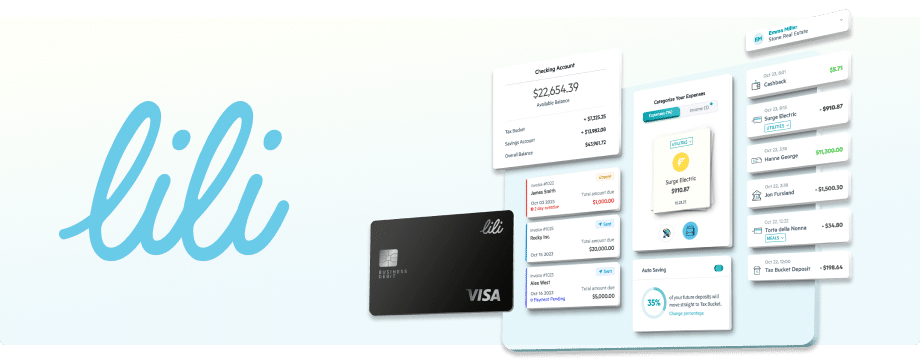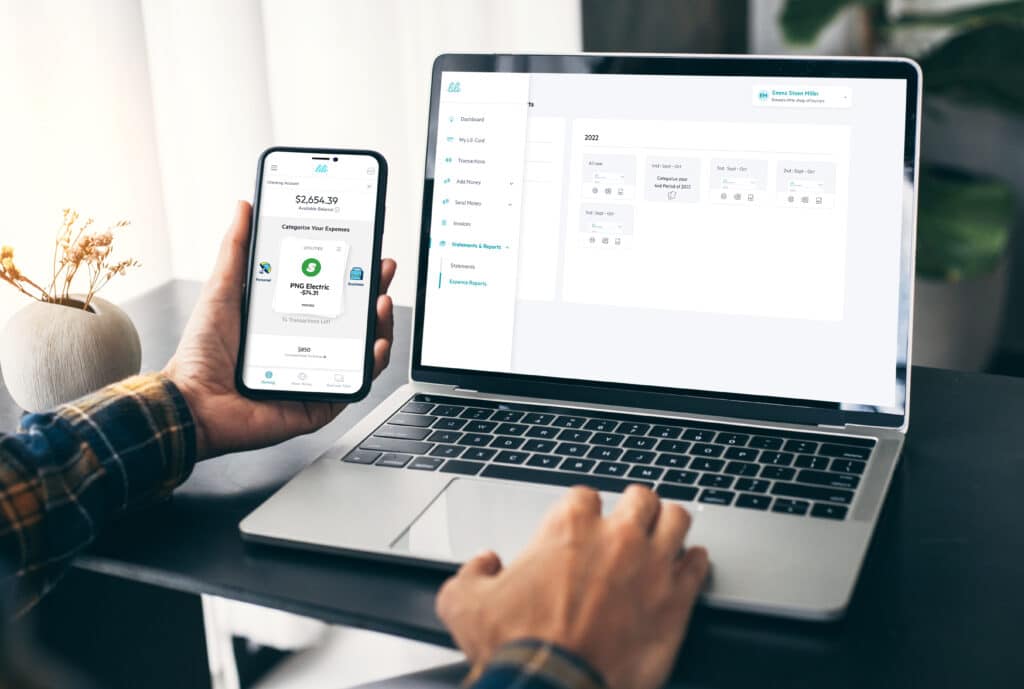What’s the most frustrating part of running a small business? For many small business owners, taxes and accounting are right at the top of that list. They tend to feel so complex that many small business owners are resigned to getting them wrong (and potentially missing out on deductions in the process) or spending a lot of time and money to try and get them right.
Many of us have given up on trying to understand accounting and taxes altogether. But the more we shy away from a problem, the more intimidating it becomes. The truth is, these functions of a business aren’t as complex as they may seem, and they don’t need to feel like such a big challenge. Let’s break down why the different financial aspects of a business feel so disjointed in the first place — and how small businesses can make them work together for better results.
Banking and accounting belong in the same platform
Every small business owner either uses an accounting tool like Quickbooks or Xero or manages their books manually through Excel. With Excel, they’re wasting hours tracking their income, expenses, and invoice payments. With an accounting tool, they’re paying twice for banking and accounting, and still have to work hard to get the numbers right.
Whether a business owner uses an accounting tool or not, their banking is kept separate from their books. This means that either they or their bookkeeper is spending numerous hours exporting data from one system, importing it to another, and manually checking that everything is reconciled correctly in order to prepare and file their taxes. And with a bookkeeper, a business owner is paying for each hour spent sorting through all of this.
When you think about it, accounting and banking are really a part of the same cycle. Small business owners get paid, they spend that money, they pay their employees and vendors, they categorize those expenses, they run reports to figure out which taxes are owed, and they pay them.
So why have banking and accounting traditionally been managed separately?
Most of the large banks that we use have been around for a very long time, and they have little incentive to change now. Traditional banks don’t need to be very customer-focused when they already dominate the market. They have the customers they need and are making plenty of money. They’re also heavily guided by legal teams that are focused on minimizing risk at every turn, so introducing a new product that would disrupt the market isn’t necessarily in their best interest. Even if it’s in the best interest of their customers.
All of your business financial needs in one platform
That’s why Lili is launching Lili Smart. The more we talked to the small business owners that use our platform, the more we realized that the separation between banking and accounting creates a massive and costly problem and gets in the way of them focusing on the work they actually love doing. So we’ve built in the payments, accounting and tax features small business owners need most, with plans to expand our product to offer even more features in the near future.
With Lili Smart, our customers never again need to waste time reconciling their banking with their books. With their business finances managed in the same platform, bank reconciliation becomes simple. Whether they’re using a bookkeeper or doing it themselves, everyone’s life gets immensely easier. When an income or expense transaction hits a Lili business checking account, the transaction is automatically categorized so our customers’ books are already organized and up to date.
By building a platform with banking as the foundation for taxes and accounting, our customers are able to let their finances work for them. With our invoicing tool, they get paid faster and can keep better track of payments. Tax savings are deducted from every income automatically, so they’re never stuck with a surprise bill when it’s tax time. And cash flow statements, profit & loss reports, and expense reports are easily generated in just a few clicks.
Having everything in the same platform doesn’t just make the admin work easier, it also helps our customers make sense of how their money is working for their businesses. They can easily see how each part of the financial process is connected and how managing their business finances is not actually as confusing as they thought it was. Such in-depth insight into their finances gives our customers the confidence to make more informed strategic business decisions.
And all of this doesn’t just eliminate headaches or make their finances easier to understand. Having access to better reporting and a clearer picture of their books also means maximizing the deductions that our customers already qualify for but might be missing out on. Money and time saved for them, fewer headaches, and the confidence to focus on growing their business. Lili is the only banking platform that takes care of bookkeeping, invoicing, payments and taxes all in the same place. Visit our website to learn more.




